Nature is helping to shape today’s young leaders
How are experiences in nature helping to shape today’s young leaders?
Let us count the ways!
For Yesica Chavez of Denver, nature-based experiences are what led her to pursue leadership training.
While she was in her first semester of college, in 2016, Chavez attended a Natural Leaders training offered by the Children & Nature Network. With its partner program, Fresh Tracks, the Natural Leaders initiative has trained more than 450 young leaders in 47 states and four countries.
“Nature is the whole reason I began my leadership journey,” Chavez says. “It helped me to grow and develop my skills as a leader. (It’s) the ability to connect with people from different backgrounds and still find something in common, which, in this case, was the natural landscape.”
Chavez and 10 other young leaders across the U.S. and Canada are now passing along their nature-based wisdom and leadership skills to other up-and-coming leaders through a new training series called Rising Generation Workshops.
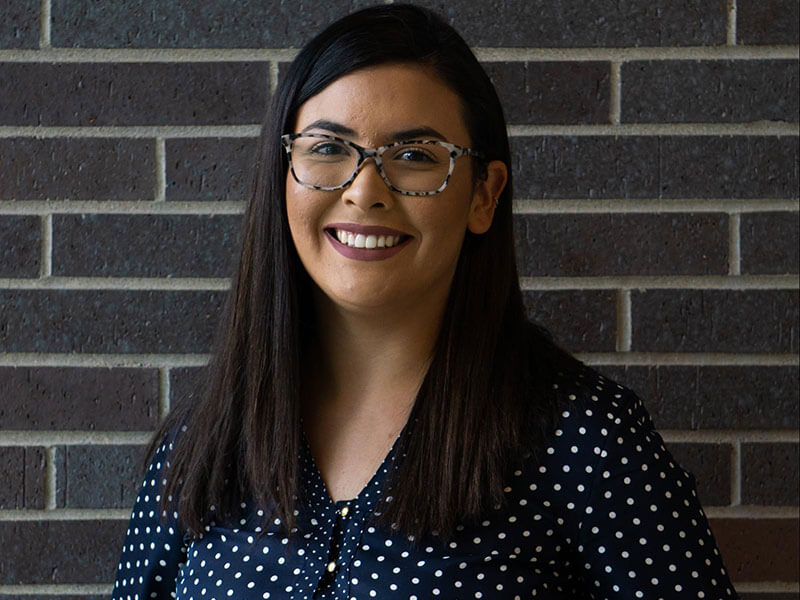
Yesica Chavez is from Denver, Colorado. Her advice to other young people is “Never let anyone invalidate you because of your age; your voice matters!”
Held virtually this summer, June 23 through July 28, the weekly workshops tackle the topics of healing in the outdoors, culture heritage, the power of personal narrative and leadership development.
Open to young adults ages 18 to 28, the Rising Generation Workshop series is presented by the Children & Nature Network and Fresh Tracks, a program through the Aspen Institute that provides youth of color with leadership training, community building skills and civic engagement opportunities. Additional support for the workshops comes from The Colorado Health Foundation.
Tanya Pappa, Youth Leadership Network Coordinator for the Children & Nature Network, who is coordinating the workshops with the 11 young co-facilitators, said the seminars are important because they allow “young leaders to connect with one another, share stories of their own experiences and become more active in their communities.”
Juan Martinez, co-founder of Fresh Tracks, says programs like Rising Generation Workshops support the view that young people are “not the leaders of tomorrow, but the leaders of today.”
Clearly, the experiential glue that binds the 11 workshop leaders is their experience in the outdoors and the resiliency that nature has taught them. They say that through nature, they have created or joined communities of like-minded peers and are working to change people’s views of the natural world.
For many of them, their desire to become generational leaders arises from the intersection of nature and inequity. Take, for example, the experiences of Kluane Buser-Rivet, who is helping to facilitate the Rising Generation Workshops.
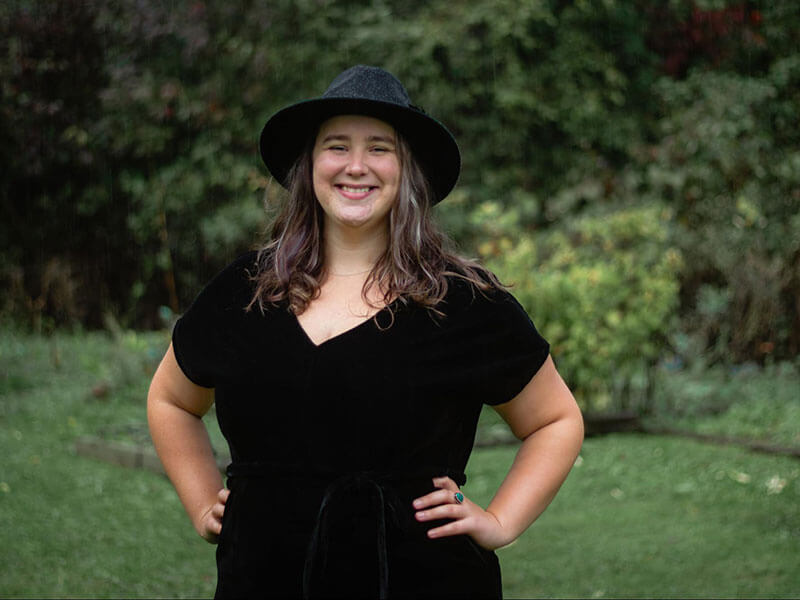
Kluane Buser-Rivet is from Victoria, British Columbia. She encourages other young people to get involved, saying, "The movement needs you for the long haul. By taking the time to rest and care for yourself and your community, we can be stronger together."
Buser-Rivet started her leadership journey as a 15-year-old advocating for environmental causes.
“In the last 10-plus years, nature has been both the driving force in much of my activism and the method by which I have supported young leaders to engage in self- and community-care,” she says. “Time in nature can be incredibly grounding and centering and it can also support bringing our best and most resilient selves to movement work.”
Finding Nature News reached out to many of the young leaders co-facilitating the Rising Generation Workshops, to ask about how nature shaped their leadership experiences and how they see themselves shaping history right now.
Here’s what they said:
Growing up urban, tackling equity
Emily Nadal grew up in a family that didn’t go outdoors much.
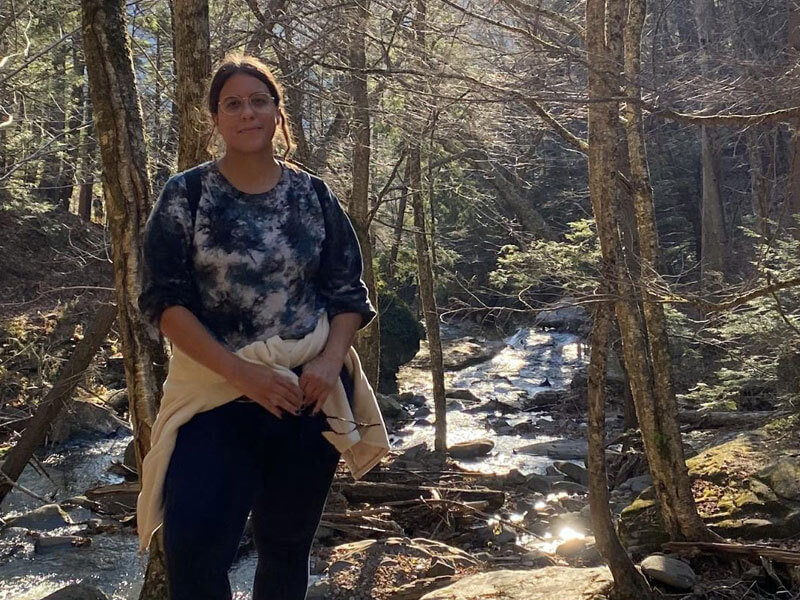
Emily Nadal is from New York, New York. Her advice to other young people: "The best way to enjoy the outdoors is any way that makes you happy."
“Growing up in an urban area, like New York City, and with a family that wasn’t keen on spending time in the outdoors, I didn’t have much experience with activities like hiking or camping,” she says.
“As I got older and became a part of programs that immersed me in natural spaces, I naturally became a steward amongst my family and friend group, leading them to and within places they may have never considered venturing into before and making sure they enjoyed themselves all the while.”
Likewise, Lucila Fernandez used her home in Washington, D.C. to launch her career in natural resources and begin working to bring nature to more Latinx people.
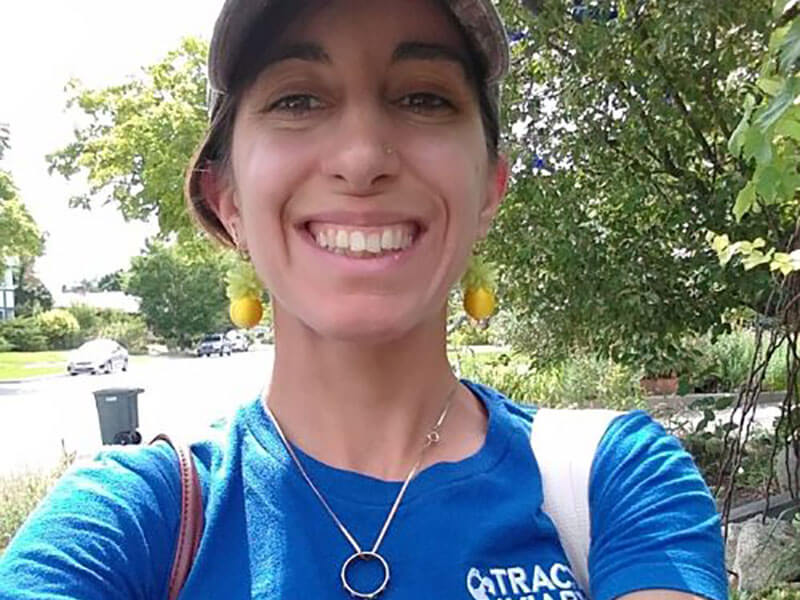
Lucila Fernandez is from Washington, D.C. She tells other young people, “Be secure in your talents and skills. There is no one way to ‘be’ in nature or to ‘do’ nature. You are the designer of what that looks like and feels like for you. Let your perspective be your anchor and an invitation for the perspectives of others.”
“Seeing someone like me, a Latine, be able to pick up a lizard from a nature trail and geek out profusely about natural history is what woke me up to the idea of a nature-based identity, let alone a career,” she says. “Assimilation into a culture hostile to the expression (physical and cultural) of any type of ‘other’ kept me from appreciating a world of growth, learning and possibility related to my relationship to nature.”
“With this experience in mind, I center my work on opening space for members of historically excluded groups to feel safe in nature recreation and conservation work, while allowing room for how one interacts with the outdoor world to be defined in a personal way,” she continues. “Working through Latino Outdoors (LO) is a vehicle for me to do this in camaraderie with my fellow LO volunteers and the many recreation affinity groups in our area.”
Using nature for reflection and connecting with one another
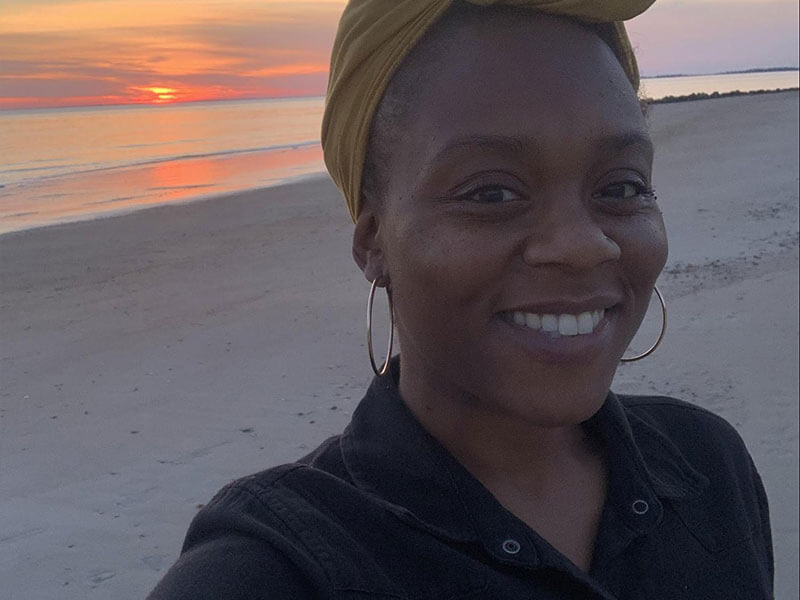
Takeya Meggett is from Edisto Island, South Carolina. Her advice to other young people? “Start where you are, using what you have.”
Takeya Meggett lives with nature all around her. When she hikes near her home in South Carolina, she learns lessons about connectivity in nature.
“One of my favorite things is hiking and I am lucky to live in a vibrant and densely forested place,” she says. “While hiking, I primarily reflect on how all flora and fauna work together to create a healthy, balanced and thriving ecosystem. They all have an essential role to play to make a system that benefits everyone and I am gently reminded of that daily”
Tamara Poles calls nature “a natural unifier for everyone.” She works with scientists, helping them to communicate and engage with the public.
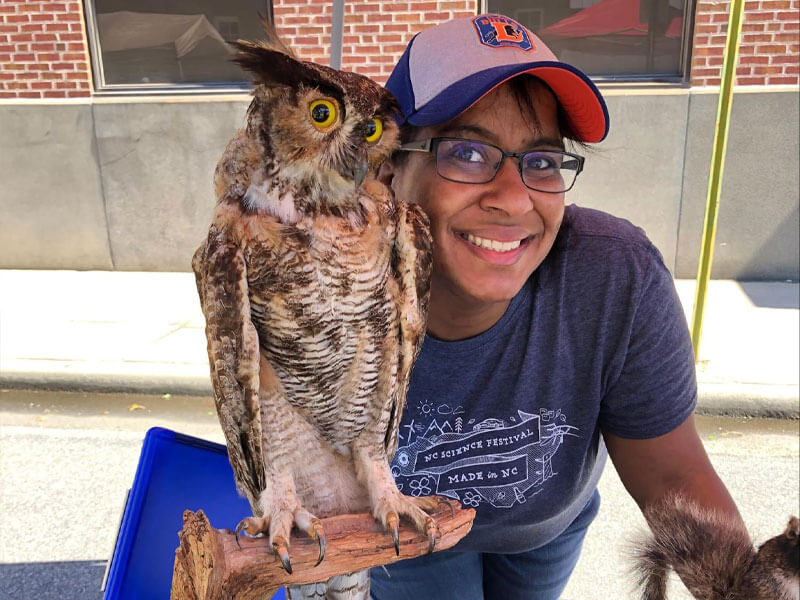
Tamara Poles is from Durham, North Carolina. She tells other young people, “Don't be afraid to be the wildflower, for those are the flowers that are most valued in nature. In other words, ‘bee’ yourself.”
“When I work with scientists, teaching them how to share their personal stories or how to communicate with the public, I always ask them to answer the question, “Why should your audience care?” says Poles. “No matter what field, the answer always relates to nature.”
As a leader, Poles said she is helping shape this moment in history by connecting science and the public. “I give scientists the tools that enable them to better communicate their research with the public and provide opportunities for them to engage with different communities,” she says. “Doing this allows the public to make scientifically informed decisions.”
Lesley Del Rio believes nature has been a form of community connection for her.
As a first generation Mexican American, her family’s goal was “to survive, progress and become established in this new country,” says Del Rio, who lives in Denver.
When she became a mother at a young age, she began to incorporate nature into “our very non-traditional life.” With a career working in adolescent health and education equity, Del Rio’s interests in leadership and nature have intersected.
She says nature has grounded her in times of adversity, “as well as rooting me and taking ownership of Colorado as my home.”
Changing minds, activating creativity, building bridges
Meredith Burke hopes to use her experiences as a leader and lover of nature to shift people’s opinions and actions for a healthier planet.
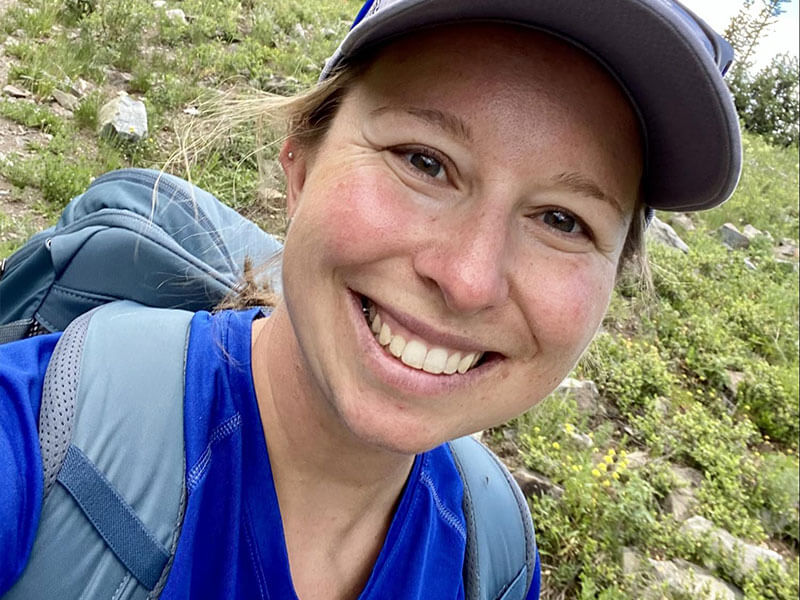
Meredith Burke is from Fort Collins, Colorado. One of her favorite quotes is from Karl Weick, an American organizational theorist who introduced the concept of mindfulness to organizations. "How can I know who I am until I see what I do? How can I know what I value until I see where I walk?"
“Every interaction (with someone) is an opportunity to shift one’s mind and respective actions about the world and its trajectory,” says Burke. “I have pledged to never stop learning and working toward making things better for the earth and its inhabitants.”
She says, “Nature has taught me that leadership is a continuous, intentional journey of trying, learning, listening, rerouting, growing and ‘keep going’.”
Nicole Jackson looks to nature to help her solve problems. “When I’m looking for guidance to solve a problem, I go out in nature. It helps me clear my brain of distractions and clutter, so I can think more critically and creatively,” she said. Jackson hopes to shape history by sharing her story “of how I’ve overcome adversity and created my own path for success.”
Willard Watson III lives and works in the resort areas of northwestern North Carolina. He used to believe that people were the biggest problem when it comes to destroying the planet; now he’s working to encourage people to be the solution.
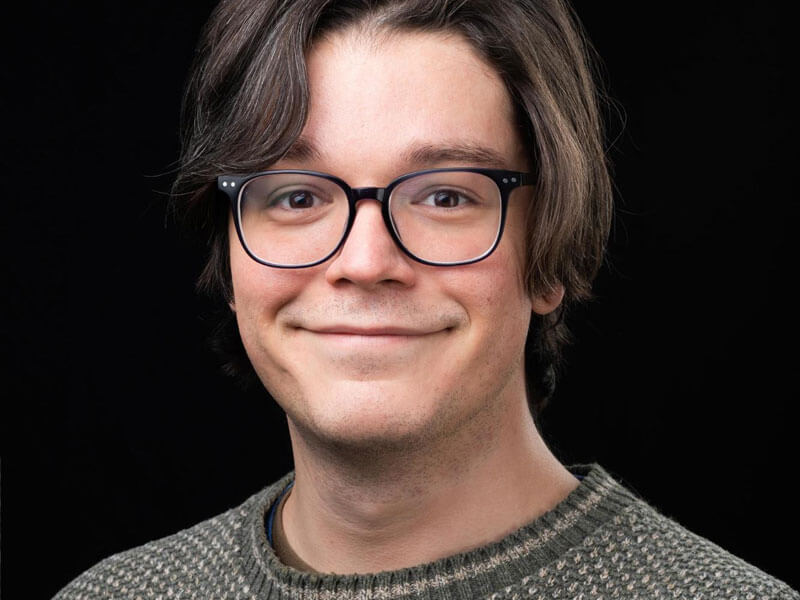
Willard Watson III is from Boone, North Carolina. When asked what advice he’d give upcoming Natural Leaders, Willard says to keep an open mind: “Sometimes the answer is ‘both and,’ not ‘either or’.”
“Since 2010 I have worked with community-based organizations to organize outdoor events for education, advocacy and fundraising,” says Watson.
“Many of these organizations are intergenerational partnerships where elderly community members impart their passion for place to the next generation. These events serve as an agent of change by connecting people to the community and that community to the natural world. These events create a unique opportunity to facilitate a paradigm shift in the way people interact with each other and the environment.”
Watson says he hopes to use the “affective politics of the creative arts to engage people emotionally and to replace barriers with bridges.”
Young leaders ages 18 to 28 are invited to register for the Rising Generation Workshop Series, which offers virtual trainings designed to help young leaders develop their personal narrative, cultural awareness, leadership style, community organizing and civic engagement skills to bring about positive change. The goal of the series is to help young adults develop leadership and advocacy skills to increase equitable access to the outdoors as a powerful pathway to healthy, just and sustainable communities.
By participating, young leaders join a diverse and welcoming network of nearly 500 other young leaders across the U.S. who have participated in similar trainings through the Natural Leaders and Fresh Tracks programs. Those who participate in all 6 workshops (either live or via recording) will receive a certificate of completion.
2 Comments
Submit a Comment
- Youth Development & Nature toolkit: A toolkit for organizations serving youth and young adults
- Natural Leaders Workshops: Recordings of virtual workshops for Nature Leaders Network for young adults
- Youth Outdoor Equity Leadership Fund: Apply for mini-grants to support efforts in your community
- The Nature Leaders Effect: Destiny, community and purpose by CJ Goulding
- Legacy of Leadership: A Q&A with Juan Martinez, by Sarah Milligan-Toffler
-
Network News
Earth Day: Young leaders advocate for change
-
Feature
Nature photographer Dudley Edmondson has a vision for the representation of Black and Brown faces in the outdoors
-
Richard Louv
EARTH MONTH: You're part of the New Nature Movement if....
-
Voices
Placemaking: How to build kinship and inclusive park spaces for children with disabilities
-
Network News
Children & Nature Network founders release report on global factors influencing the children and nature movement
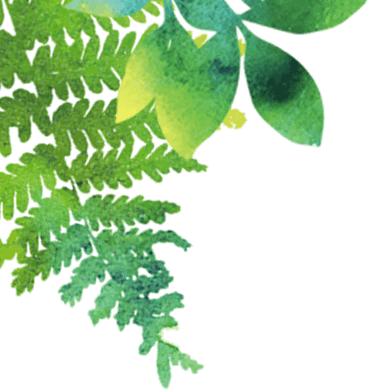

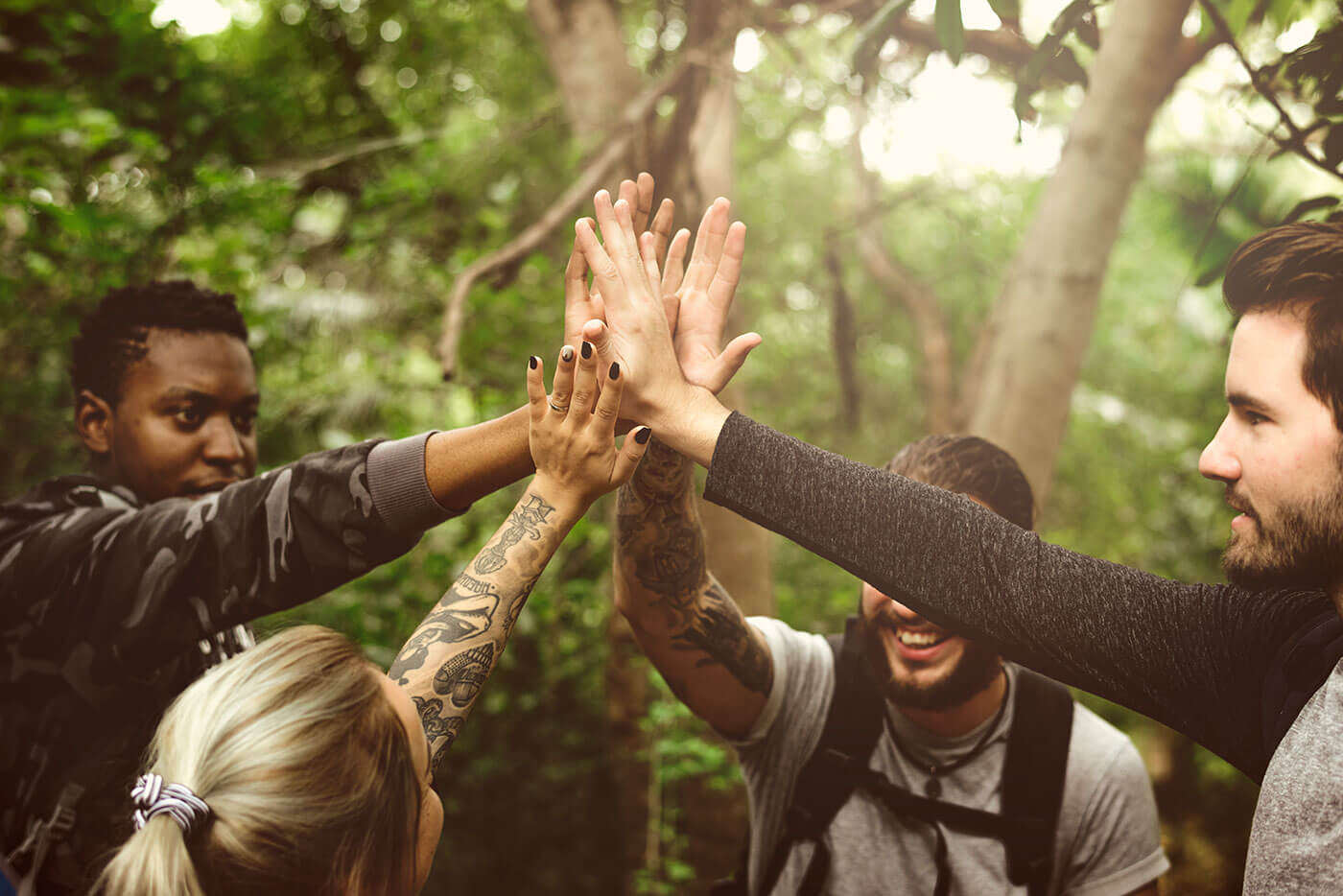
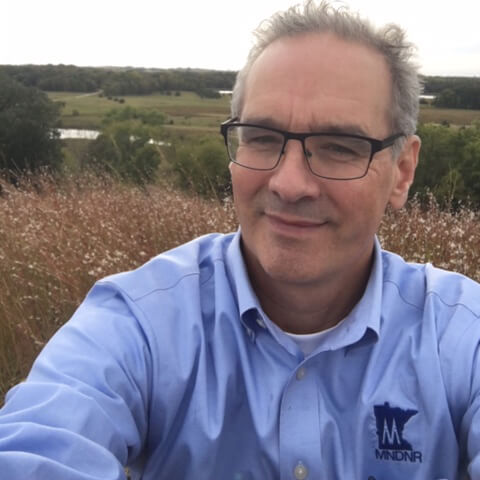
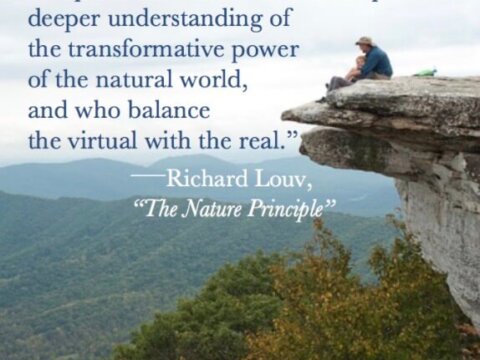
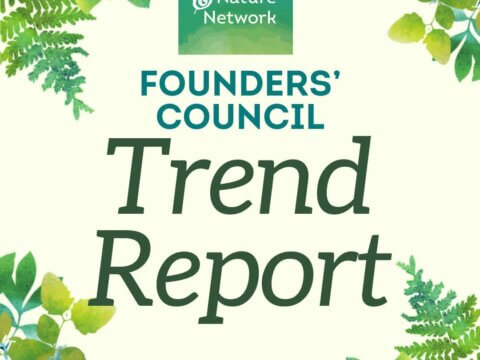
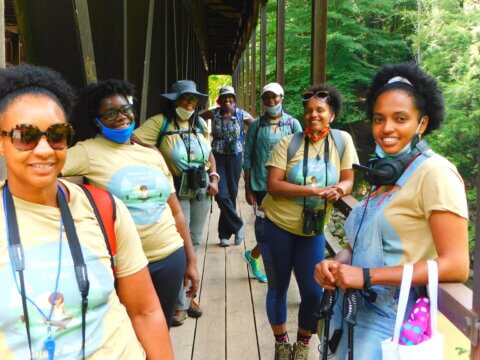
I am on the Whole Child Leon Board in Tallahassee Florida (Leon County). We have just finished our annual report on the most critical issues preventing the positive growth and development of children with special focus on children 0-5, but not exclusively. “Nature deficit” is one of the top ten most serious issues.
We are having our annual Children’s Summit in October and our plan is to focus on developing strategies to address each of these issues. This is the first year that nature deficit has been on the most critical list. Unlike the other issues, however, we do not have much experience with getting serious attention and activity related to engaging community investment and activities that will make a difference. If you have suggestions for now to motivate community engagement
in addressing nature deficit (examples of how other communities have built this), this would be very helpful as we plan for the summit.
Our annual report is available on the web at “Whole Child Leon.com”
Thank you for considering this request and for any suggestions you can give us.
Ed Feaver
Thanks, Ed, for sharing this information and best wishes for a successful Children’s Summit in October. We’ll follow up via your email with some resources and ideas — and we’d love to see your annual report!